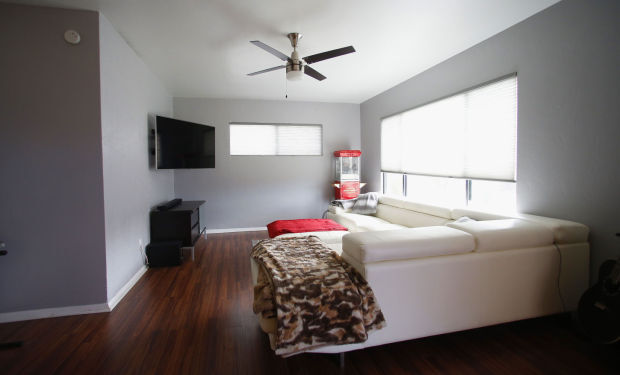PHOENIX т Saying a 2016 law hasnтt worked out as promised, a House panel voted 8-5 Wednesday to give cities more control of how and where vacation rentals operate.
House Bill 2481 would allow city and town councils to impose limits on how many people can be in a short-term rental based on the number of bedrooms.
Potentially more significant, Rep. John Kavanagh, R-Fountain Hills, said his legislation would permit cities to enact zoning restrictions that could limit the number of these short-term rentals in any one neighborhood т or entirely within the communityтs borders.
The 2016 law barred cities and counties from enacting any new ordinances that limit short-term rentals. It also overruled any existing rules already in effect.
тIt was sold as the elderly couple, empty nesters with the extra bedroom, who could make a few extra bucks renting out their room to tourists or whatever,т Kavanagh said. тThat seemed benign.т
People are also reading…
Airbnb is taking a proactive approach in preventing overcrowded parties this New Year. Source by: Stringr
тBut in reality, short-term rentals are such that an investor can make far more money buying a house and renting it out as a hotel т as a horizontal, decentralized hotel т than renting the house out for long-term rental,т he said. Kavanagh said the same thing happened as apartment buildings were bought up to be converted to de-facto hotels.
тWhen the owner is not present, you have real problemsт for neighbors, with no one there to monitor behavior and an inability to screen every prospective tenant, he said.
That isnтt the only issue.
Kavanagh said the law has created problems in places like Sedona, where he said 40% of the available rental units are now vacation properties, тdriving up the prices of all rentals and making it impossible for city employees or even business employees, store employees, to live in the town.т
Sedona Mayor Sandy Moriarity underscored the problem for the House Committee on Government and Elections. She said Sedona has 723 short-term rentals within the city limits and another approximately 400 just outside.
But Rep. Jake Hoffman, R-Queen Creek, found the whole concept behind the bill offensive.
тProperty and the ability to use oneтs property to its fullest extent, and to the fullest enjoyment, is your right,т he said.
Hoffman said there are enough ordinances already in place to deal with тbad apples.т
Kavanagh disagreed. тThere is not an absolute right to do whatever you want with your property,т he said, adding: тWhen you invest your life savings in home in a residential neighborhood, you have a right to make sure that it stays residential.т
Google search trends show how travel has changed in the last decade
Roaming charges

Remember coming home from an overseas vacation wondering how bad the cellphone bill was going to be? No longer. With Wi-Fi availability practically everywhere, keeping in touch is no longer expensive.
Exchange rates

In 2010, changing money was practically a requisite. In 2020? Credit cards and money cards are the go-to currency.
Beach holidays

Look, going to the beach will never be out of style. But the Google search data showed that beach holidays have been up and down over the last decade and has trended downward.
Solo travel

This has grown tremendously since 2010 with a rise in adventure or experiential travel.
Babymoons

Another category where the research has shown a growing trend upward. Where it used to be mostly for the rich to take a prebaby vacation, now everybody is doing it.
Vegan travel

This is a no-brainer. As veganism has grown, so too has this segment of foodie travel.
Airbnb

Again, a no-brainer. Airbnb was a fledgling entity in 2010, having been founded just two years prior. Now it's a behemoth.
Influencers

According to The Travel Aisle, the world's top travel bloggers have become the No. 1 resource for many travelers when planning their trips.
___
(TravelPulse is a leading travel authority on the web, providing consumer travel news and insider tips and advice for an ever-changing travel world. Read more stories at )











